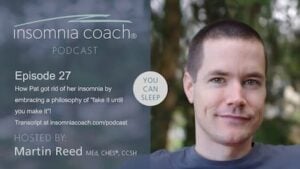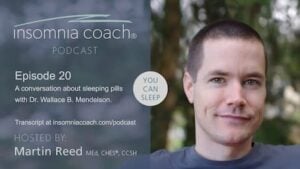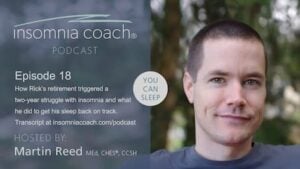How Pat got rid of her insomnia by embracing a philosophy of “fake it until you make it” and accepting anxious thoughts (#27)
Pat, like everyone else, had some difficult nights occasionally, but she always got back on track with her sleep. However, during the summer, her neighbors began throwing loud parties that disturbed her sleep.
As a result, Pat began to fear falling asleep and became fixated on her sleep quality, cancelling plans and rearranging her life around it. However, these efforts didn’t lead to better sleep. So, Pat decided to take a different approach and pretended that she had a good night’s sleep every day. She continued with her normal activities and pursued enjoyable and enriching daytime activities, independent of how she slept. She also stopped talking about her insomnia.
By shifting her focus away from sleep and not allowing it to control her life, Pat found it easier to sleep. She also stopped trying to control her anxious thoughts and instead, chose to accept them. Finally, she let go of her attempts to control her progress and accepted that sleep is something beyond her control.
Pat realized that by placing less importance on sleep, it became easier to fall asleep.










